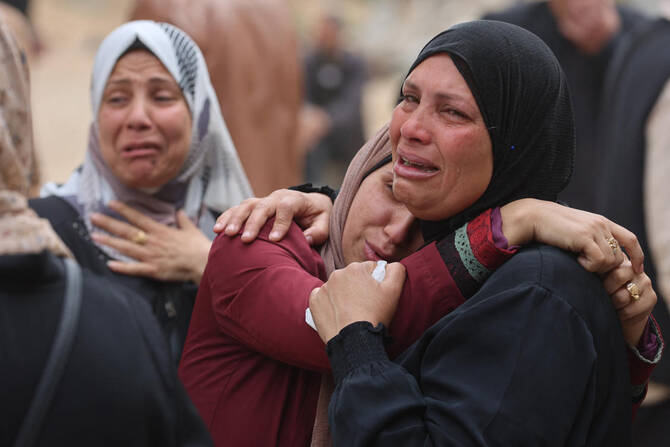ISTANBUL: Porters roam the narrow streets of Laleli in central Istanbul carrying parcels ready for shipment to customers all over the world.
The maze of alleys that lead down to the Sea of Marmara have long been the center of the “suitcase trade” to sub-Saharan Africa, a route through which merchants carry goods back and forth in their baggage.
But Laleli’s informal shipping scene, once a bustling hub of cross-continental trade, is now facing growing pressure from rising costs and tougher residency rules imposed by Turkish authorities.
African traders, who helped drive demand for Turkish goods through the “kargo” system – small-scale shipping services between Turkish wholesalers and buyers across Africa – say business has slumped, even as official export figures continue to rise.
While some still make round trips, most trade now moves through shipping services.
For agents like Fadil Bayero – a Cameroonian who runs a kargo business that ships clothing, cosmetics and home textiles from Turkiye to clients across Africa – business is slow.
Turkish products have a very good reputation in Africa, he said.
“Before this room was filled to the ceiling. Today it is half-empty,” the 39-year-old said.
Like many Africans in the neighborhood, he claimed that shipments have dropped, even as Turkish exports to Africa have generally soared – from $11.5 billion (€10.1 billion) in 2017 to $19.4 billion last year.
Turkish textiles, once known for their affordability, have grown more expensive in recent years.
Merchants say inflation – above 35 percent since late 2021 – has pushed African buyers toward cheaper suppliers in China and Egypt.
But for Bayero, the explanation lies elsewhere.
“It’s not inflation that’s the problem, it’s the arrests. Many people have been deported,” he said.
Since 2022, Turkiye’s migration policy has toughened, with the authorities blocking new residence permit applications in several districts of Istanbul, including Fatih, where Laleli is located.
The goal is to limit the proportion of foreigners to 20 percent per neighborhood.
“The stores, the streets, everything is empty now,” said Franck, one of Bayero’s colleagues.
“Look out the window – the sellers sit all day drinking tea while waiting for customers.”
A few streets away, Shamsu Abdullahi examined his spreadsheets.
In his dimly lit room, dozens of bundles are stacked on the white tiled floor, awaiting shipment.
Since January, he and his two colleagues have shipped over 20 tons of goods by air freight and filled the equivalent of 15 maritime containers.
The Nigerian has also made around 15 round trips to his homeland, bringing 80 kilos (176 pounds) of goods with him on each journey.
“My residence permit expires in two months, and I think the authorities won’t renew it,” he said.
He and his associates generate over a million euros a year in revenue.
“It’s money spent in Turkiye that fuels the local economy,” he said.
Historian Issouf Binate, a lecturer at Alassane Ouattara University in the Ivory Coast, said much of the trade is informal, making it hard to track.
“It’s difficult to provide figures on the volume of Turkiye’s exports to Africa because many businesses are informal,” he said.
“Kargos” are “transitional businesses,” with improvised activity shared between friends or family members.
Many in Laleli now believe that the golden age of the “kargo” and suitcase trading is over.
“In one year we went from about three tons of shipments per week to 1.5,” said a young Congolese who has lived in Istanbul for five years and asked not to be named.
“Even if we still manage to find low-cost products, we cannot compete with China,” he added.
Arslan Arslan, a Turkish merchant who sells African dresses a few meters (yards) away, painted the same picture.
“Before, I had customers from morning to evening... but the authorities sent them back.”
Now Arslan searches for his African customers on social media.
“I’m on Telegram, Instagram, Facebook. But here, everything has become expensive,” he said.
“I’ve lost 70 percent of my revenue in a year.”


























